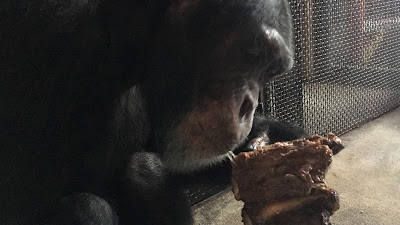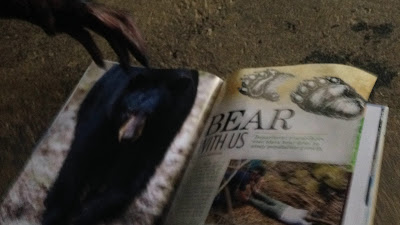When 100 pig-tailed macaques disrupt the voting process https://t.co/muxpyQj7cO #monkeys #primates #Thailand— Barbara J King (@bjkingape) July 26, 2016
When 100 pig tailed-macaques disrupt the voting process in Thailand, we can laugh that no matter how bad our own election cycle problems might be, at least we haven't had this happen here yet. But what if the monkeys in Thailand are not any less intelligent than some of the humans? What if they are in fact aware of the news and siding with the two eight year old girls now facing criminal charges in Thailand for tearing a voter registration list off the wall because they liked the pink paper it was printed on?
Do you think those little girls deserve to have the vote, given their current level of maturity and impulse control? I am not alone in thinking they do not. In most countries the vote is restricted to people over the age of eighteen, who are presumed to have the level of maturity required to make decisions that affect everyone. In many places, that is not a rebuttable presumption. But shouldn't it be?
In the past, in places where representative government was first practiced, it was always restricted to free males. And usually free males were males who owned property. Take the government of Carthage.
— Aya Katz (@AyaKatz) July 25, 2016
In Carthage, unlike Tyre from which it derived, there was no king. Carthage was run by two annually elected judges (שופטים) who made both judicial and executive decisions. One of the judges was responsible for domestic affairs and the other for matters abroad. There was also a senate of great ones who served for life and who decided on declarations of war, and a popular assembly that was responsible for deciding things that the judges and great ones did not agree upon. Participation in politics and the popular assembly was limited to those who had citizenship: free, native born males.
In the United States we associate the idea of slavery with captive kidnapped Africans -- a violation of civil liberties -- and we are taught to think that everyone should be free and everyone should vote. We are not told that representative government is not strictly a European idea. We are never told about what really happened in Carthage. But in Carthage's sophisticated African government, it was understood that in order to vote you had to be free -- and that not everyone was capable of being free, even if native born. It was not about race. It was about impulse control.
Today, in the United States, we have many voters of all walks of life, of any and all colors, who show very little impulse control. For instance, the rise of Donald Trump is often laid at the feet of poor, white voters. Self- reliance and liberty turns out to be a terrifying prospect for millions of struggling Americans.
It's not a race thing. It's not a species thing. It is more like mass culture and which cognitive profile is allowed to prosper and dominate over others. When people are not permitted to individuate, when decisions are made collectively for all, when the lowest impulses predominate and property rights disappear, then destruction is what follows. When tenants vote on the rent landlords may charge and people who have no money get to vote who gets the money of those who have some, then we descend into chaos.
It's not necessarily that monkeys or apes are not intelligent. It's about how you arrange their government. One hundred macaques behave very differently as individuals than as a mob.This is why we have never allowed the lowest common denominator to rule in civilized countries like Carthage. And I think that Bow, too, would not do as well as he is doing now, if merged into a collective tribe of chimpanzees, without the chance to opt out of forced encounters.



































